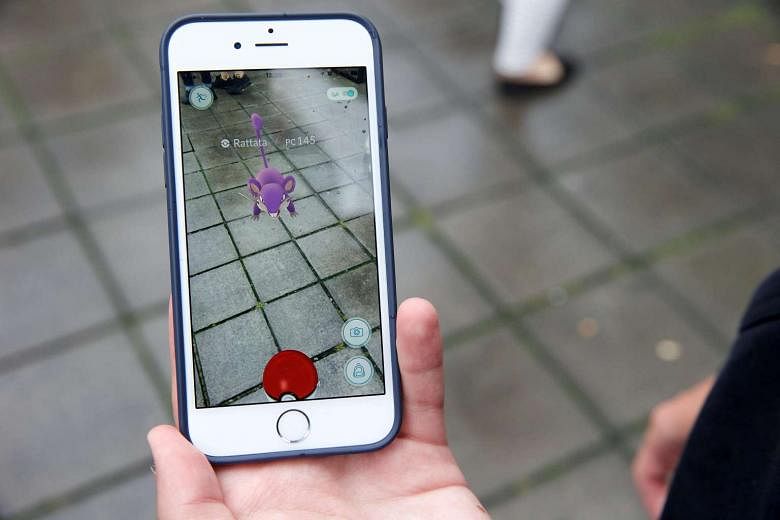(THE WASHINGTON POST) - For a few glorious weeks, it seemed as though the makers of Pokemon Go could do no wrong.
Sure, players were getting in trouble for trespassing and taking out the game at inappropriate times. But Niantic, the developer behind the franchise was sitting fairly pretty.
Now, less than a month after the game's launch in the United States, it's probably safe to call the honeymoon over.
Since its launch, the record-shattering game has lost some popularity - it has fallen to No. 2 in Apple's App Store in Japan, according to the app tracking firm App Annie. And although it remains the top-downloaded and top-grossing game in the US, a new version of the popular app has drawn the fury of some of its most devoted fans.
The main problem is the tracker, the in-game tool that players use to find Pokemon that are close by.
When the game launched, users could use this tool to get an idea of how near or far they were from a particularly Pokemon. The tracker hasn't worked for a couple of weeks, taking a lot of the fun out of "hunting" for Pokemon, because players don't have a good idea of how close they are to the Eevee or Bulbasaur they may be seeking.
Over the weekend, Niantic "fixed" this bug by eliminating any way to judge the distance a player was from any given Pokemon. In players' eyes, that was not particularly helpful, to say the least. In fact, many declared that they were going to stop playing the game altogether.
Even worse for players, Niantic shut down third-party websites that had sprung up to show players where Pokemon were appearing - sites that many players were using to track Pokemon as the game originally intended.
The update that altered the tracker also eliminated some other features that players quickly missed, such as the battery saver feature on iOS. Many on social media have said this feature may have been removed because it was causing the app to crash or freeze often. But Niantic has not confirmed that.
And that really gets to the heart of the problem: Niantic was completely unresponsive to player feedback, giving fans almost no information on why it decided to make these changes.
The company is in the process of hiring a "community manager" for Pokemon Go. Until then, however, it seems that the company does not have anyone tasked to field complaints. For a game in which community matters immensely - meeting other players has been one of its main draws - it seemed almost unthinkable that it wouldn't interact with that community, even if it was rushing to fix the app.
Niantic finally broke its silence and confirmed on Facebook that it will eventually add the feature to a future update, though it didn't say when players can expect it.
In the update, Niantic addressed its silence, saying that it is going to try to be more communicative in the future - a promise that may still smooth over relations with its obviously passionate player base.
"If you haven't heard us Tweeting much it's because we've been heads down working on the game," the Facebook post said. "But we'll do our best going forward to keep you posted on what's going on."
Niantic also addressed the decision to take down the third-party services, insinuating that these websites put unnecessary pressure on its servers. "We have limited access by third-party services which were interfering with our ability to maintain quality of service for our users and to bring Pokemon Go to users around the world," the company's post said.
It's also possible, of course, that Niantic didn't like the thought of others interfering with its work or piggybacking off its game, which some estimate has made millions of dollars per day.
In interviews, Niantic chief executive John Hanke has said that he was "not a fan" of those sites, because he felt they hurt the game.

